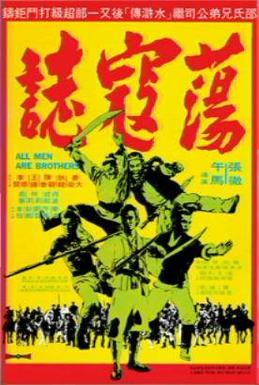Related Research Articles
![<i>New Women</i> 1935 [[Cinema of China|China]] film](https://upload.wikimedia.org/wikipedia/commons/thumb/4/47/%E6%96%B0%E5%A5%B3%E6%80%A7%E6%B5%B7%E6%8A%A5.jpg/320px-%E6%96%B0%E5%A5%B3%E6%80%A7%E6%B5%B7%E6%8A%A5.jpg)
New Women is a 1935 Chinese silent drama film produced by the United Photoplay Service. It is sometimes translated as New Woman. The film starred Ruan Lingyu and was directed by Cai Chusheng. This film became one of Ruan Lingyu’s better known works. Her suicide on International Women’s day drew attention to the controversial status of new women and made this film a sensation in modern China.

The arts of China have varied throughout its ancient history, divided into periods by the ruling dynasties of China and changing technology, but still containing a high degree of continuity. Different forms of art have been influenced by great philosophers, teachers, religious figures and even political leaders. The arrival of Buddhism and modern Western influence produced especially large changes. Chinese art encompasses fine arts, folk arts and performance arts.

All Men Are Brothers, also known as Seven Soldiers of Kung Fu, is a 1975 Hong Kong wuxia film based on the Chinese classical 14th century novel Water Margin. The film was produced by the Shaw Brothers Studio and directed by Chang Cheh and Wu Ma.

Zhou Yi is a Chinese pipa player.

The Water Margin is a 1998 Chinese television series adapted from Shi Nai'an's classical 14th-century novel of the same title. It was produced by CCTV with Zhang Jizhong as producer. It was first broadcast in China in January 1998. The series also featured action choreography by Yuen Woo-ping.

All Men Are Brothers is a 2011 Chinese television series adapted from Shi Nai'an's 14th century novel Water Margin, one of the Four Great Classical Novels of Chinese literature. The series is directed by Kuk Kwok-leung and features cast members from mainland China, Taiwan and Hong Kong. The series was first broadcast on 8TV in March 2011 in Malaysia.

The Peach Blossom Fan is a musical play and historical drama in 44 scenes that was completed in 1699 by the early Qing dynasty playwright Kong Shangren after more than 10 years of effort.

Wu Zetian is a Chinese television series based on the life of Wu Zetian, the only woman in Chinese history to assume the title of Empress Regnant and became the de facto ruler of China in the late seventh century. Directed by Chen Jialin, the series starred Liu Xiaoqing as the title character. It was first broadcast on CCTV in China in 1995 and subsequently aired by television stations in other countries.

Justice Bao is a Chinese TV series starring producer Jin Chao-chun as the Song dynasty official Bao Zheng. The series ran for 3 seasons from 2010 to 2012. In addition to Jin, Kenny Ho, Fan Hung-hsuan and Lung Lung again reprise their iconic roles from the 1993 Taiwanese hit Justice Pao and the 2008 Chinese series Justice Bao.

Li Ching, also spelled Lee Ching ;, was a prominent Hong Kong actress and producer from the early 1960s to the late 1970s.

Cao Cao is a Chinese television series based on the life of Cao Cao, a warlord who rose to power towards the end of the Eastern Han dynasty and laid the foundation for the state of Cao Wei in the Three Kingdoms period. Directed by Hu Mei, the series aimed to portray a more historically accurate image of Cao Cao, who is traditionally depicted as a villain in Chinese culture. Starring Zhao Lixin as the eponymous character, the series was filmed at the Xiangshan Film City in Ningbo, Zhejiang between 1 November 2011 and 15 March 2012.

Be With You is a 2015 Taiwanese romance, family drama television series produced by Sanlih E-Television, starring Bobby Dou, Huang Pei Jia, Nylon Chen, and Vivi Lee as the main cast. The Chinese title literally translates to "Want To Love". Filming began on March 18, 2015 and the series was aired while filming continued. First original broadcast began April 14, 2015 on SETTV channel, airing weekly from Monday till Friday at 8:00-9:00 pm.

How Much Sorrow Do You Have, also known as The Real Warrior in some countries, is a 2005 Chinese historical drama produced by Beijing HualuBaina Film & TV Co. It was first broadcast on China Television in Taiwan in August 2005. In mainland China it was first broadcast on CCTV-8 in 2006. The title is directly taken from a poem by Li Yu, the protagonist of the drama.

Legend of Nine Tails Fox is a 2016 Chinese television series based on six tales in Strange Tales from a Chinese Studio by Pu Songling. It originally aired two episodes daily on Hunan TV, Sunday through Tuesday at 22:00, as well as being simultaneously broadcast online on Youku, Tencent, Sohu and iQiyi. The drama was directed by Liu Yufen, Gao Linbao and Xu Huikang, and stars an ensemble cast of actors. The drama is separated into six plots, based on the corresponding stories in the Strange Tales from a Chinese Studio.
Paris Sonata is a 2006 Chinese television series starring Ruby Lin, Ren Quan and Leanne Liu in the lead roles, and it premiered on Guangdong Television on July 2, 2006.
Gu Mei, better known by her art name Gu Hengbo - also known as Xu Shanchi (徐善持) and Xu Zhizhu (徐智珠) after her marriage - was a Chinese Gējì, poet and painter. She received the title "Lady" (furen) from the early Qing court, and is often addressed as "Lady Hengbo" in Qing writings.

The Whirlwind Girl is a 2015 Chinese television series based on the novel of the same name written by Ming Xiaoxi. It aired on Hunan TV from 7 July to 26 August 2015.

Chinese Paladin 5 is a 2016 Chinese television series adapted from the adventure role-playing game of the same name by Softstar Entertainment. The series is produced by Chinese Entertainment Shanghai and stars Elvis Han, Guli Nazha, Joe Cheng, Yang Caiqi, Gina Jin and Geng Le. It was first aired on Hunan TV from 23 May to 19 July 2016.

With You is a 2016 Chinese streaming television series based on the novel The Best of Us (最好的我们) by Ba Yue Chang An (八月长安). It stars Liu Haoran and Tan Songyun in lead. It aired on iQiyi from 8 April to 14 May 2016.
References
- 1 2 3 4 5 6 Sweet Song Queen Li Lingyu Archived 8 May 2008 at the Wayback Machine , 18 January 2007, All-China Women's Federation
- ↑ Li Lingyu employed as part-time professor, Sina Corp.com, 24 December 2005 (in Chinese)